BMW X3 vs VW ID.4 – Which model is better for everyday use?
Everyday use, family trips or long-distance drives – here’s where the differences show.
Discover whether BMW X3 or VW ID.4 fits your lifestyle better.
Costs and Efficiency:
Price and efficiency are often the first things buyers look at. Here it becomes clear which model has the long-term edge – whether at the pump, the plug, or in purchase price.
VW ID.4 has a clearly advantage in terms of price – it starts at 34600 £, while the BMW X3 costs 51300 £. That’s a price difference of around 16685 £.
As for range, the VW ID.4 performs convincingly better – achieving up to 569 km, about 481 km more than the BMW X3.
Engine and Performance:
Power, torque and acceleration say a lot about how a car feels on the road. This is where you see which model delivers more driving dynamics.
When it comes to engine power, the BMW X3 has a slightly edge – offering 398 HP compared to 340 HP. That’s roughly 58 HP more horsepower.
In acceleration from 0 to 100 km/h, the BMW X3 is slightly quicker – completing the sprint in 4.60 s, while the VW ID.4 takes 5.40 s. That’s about 0.80 s faster.
In terms of top speed, the BMW X3 performs distinct better – reaching 250 km/h, while the VW ID.4 tops out at 180 km/h. The difference is around 70 km/h.
There’s also a difference in torque: VW ID.4 pulls barely noticeable stronger with 679 Nm compared to 670 Nm. That’s about 9 Nm difference.
Space and Everyday Use:
Cabin size, boot volume and payload all play a role in everyday practicality. Here, comfort and flexibility make the difference.
Both vehicles offer seating for 5 people.
In curb weight, BMW X3 is slight lighter – 1930 kg compared to 1975 kg. The difference is around 45 kg.
In terms of boot space, the BMW X3 offers hardly perceptible more room – 570 L compared to 543 L. That’s a difference of about 27 L.
In maximum load capacity, the BMW X3 performs barely noticeable better – up to 1700 L, which is about 125 L more than the VW ID.4.
When it comes to payload, BMW X3 barely noticeable takes the win – 570 kg compared to 551 kg. That’s a difference of about 19 kg.
Who comes out on top?
Overall, the VW ID.4 shows itself to be outperforms in nearly all aspects and secures the title of DriveDuel Champion.
It convinces with the more balanced overall package and proves to be the more versatile choice for everyday use.
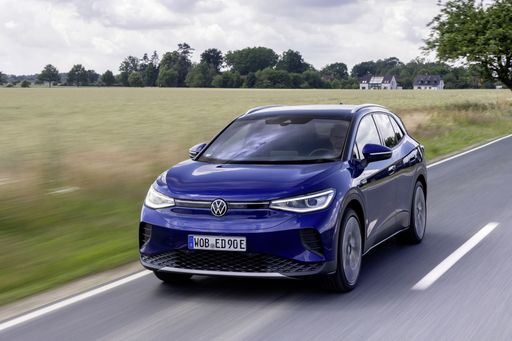
VW ID.4
BMW X3
The BMW X3 stands out in the competitive SUV market with its refined blend of performance and luxury. Its interior boasts high-quality materials and a design focused on driver comfort and convenience. With a robust engine lineup, the vehicle offers a balanced driving experience that caters to both urban settings and off-road adventures.
details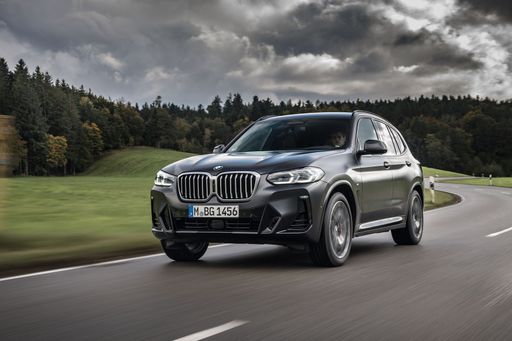 @ press.bmwgroup.com
@ press.bmwgroup.com
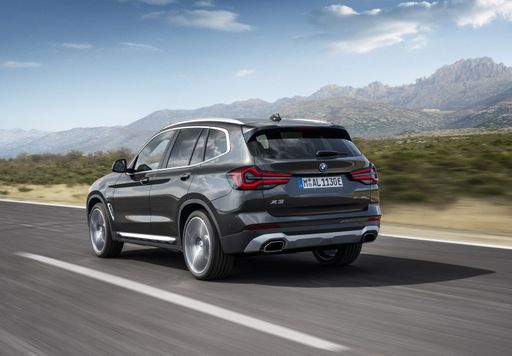 @ press.bmwgroup.com
@ press.bmwgroup.com
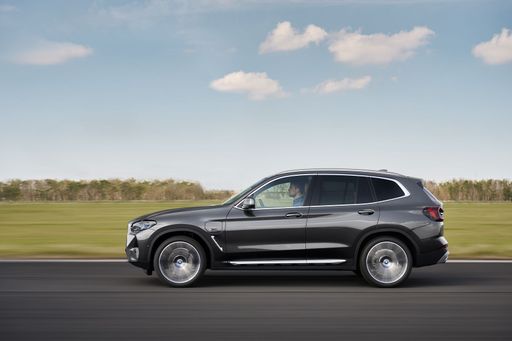 @ press.bmwgroup.com
@ press.bmwgroup.com
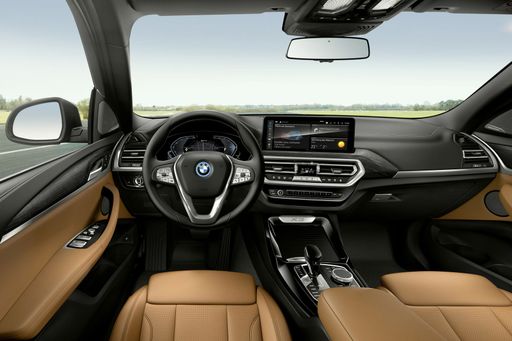 @ press.bmwgroup.com
@ press.bmwgroup.com
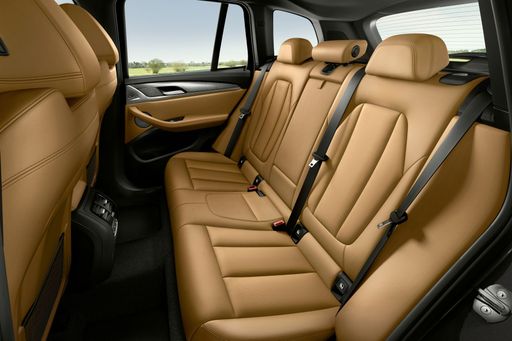 @ press.bmwgroup.com
@ press.bmwgroup.com
VW ID.4
The VW ID.4 represents Volkswagen's commitment to the electric vehicle market, combining contemporary design with sustainability. Its spacious interior and intuitive technology make it an attractive choice for those seeking comfort and innovation in an eco-friendly package. With a focus on electric performance and practicality, this car is set to be a popular option among environmentally-conscious drivers.
details @ Volkswagen
@ Volkswagen
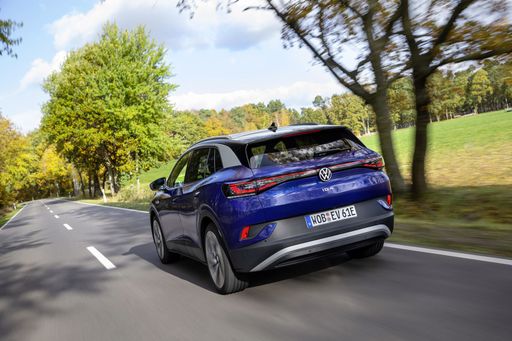 @ Volkswagen
@ Volkswagen
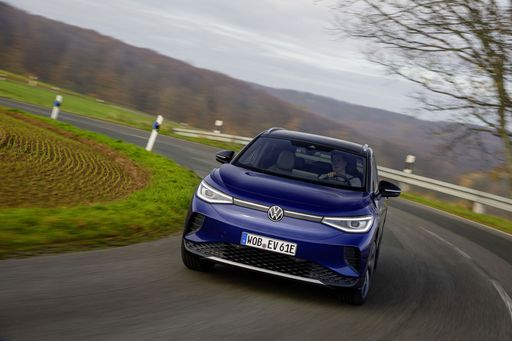 @ Volkswagen
@ Volkswagen
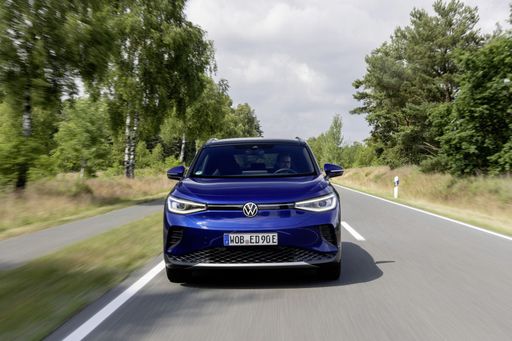 @ Volkswagen
@ Volkswagen
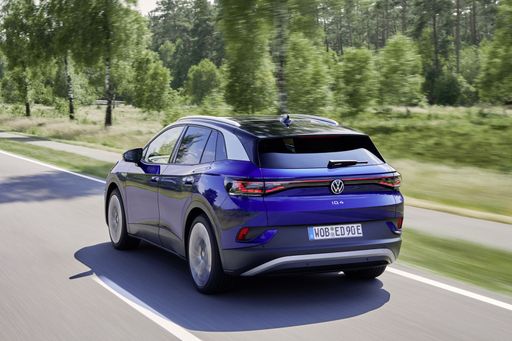 @ Volkswagen
@ Volkswagen
 @ Volkswagen
@ Volkswagen
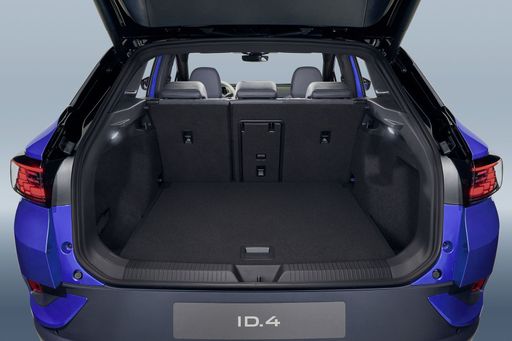 @ Volkswagen
@ Volkswagen
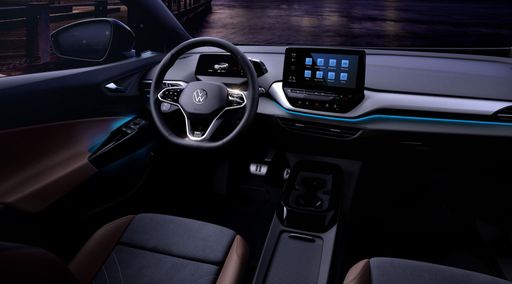 @ Volkswagen
@ Volkswagen

|

|
|
|
|
Costs and Consumption |
|
|---|---|
|
Price
51300 - 72400 £
|
Price
34600 - 47200 £
|
|
Consumption L/100km
2.8 - 7.7 L
|
Consumption L/100km
-
|
|
Consumption kWh/100km
-
|
Consumption kWh/100km
15.6 - 17 kWh
|
|
Electric Range
88 km
|
Electric Range
356 - 569 km
|
|
Battery Capacity
19.70 kWh
|
Battery Capacity
52 - 77 kWh
|
|
co2
64 - 175 g/km
|
co2
0 g/km
|
|
Fuel tank capacity
50 - 65 L
|
Fuel tank capacity
-
|
Dimensions and Body |
|
|---|---|
|
Body Type
SUV
|
Body Type
SUV
|
|
Seats
5
|
Seats
5
|
|
Doors
5
|
Doors
5
|
|
Curb weight
1930 - 2140 kg
|
Curb weight
1975 - 2248 kg
|
|
Trunk capacity
460 - 570 L
|
Trunk capacity
543 L
|
|
Length
4755 mm
|
Length
4582 - 4584 mm
|
|
Width
1920 mm
|
Width
1852 mm
|
|
Height
1660 mm
|
Height
1619 - 1634 mm
|
|
Max trunk capacity
1600 - 1700 L
|
Max trunk capacity
1575 L
|
|
Payload
570 kg
|
Payload
511 - 551 kg
|
Engine and Performance |
|
|---|---|
|
Engine Type
Petrol MHEV, Diesel MHEV, Plugin Hybrid
|
Engine Type
Electric
|
|
Transmission
Automatic
|
Transmission
Automatic
|
|
Transmission Detail
Automatic Gearbox
|
Transmission Detail
Reduction Gearbox
|
|
Drive Type
All-Wheel Drive
|
Drive Type
Rear-Wheel Drive, All-Wheel Drive
|
|
Power HP
197 - 398 HP
|
Power HP
170 - 340 HP
|
|
Acceleration 0-100km/h
4.6 - 7.8 s
|
Acceleration 0-100km/h
5.4 - 9 s
|
|
Max Speed
215 - 250 km/h
|
Max Speed
160 - 180 km/h
|
|
Torque
330 - 670 Nm
|
Torque
310 - 679 Nm
|
|
Number of Cylinders
4 - 6
|
Number of Cylinders
-
|
|
Power kW
145 - 293 kW
|
Power kW
125 - 250 kW
|
|
Engine capacity
1995 - 2998 cm3
|
Engine capacity
-
|
General |
|
|---|---|
|
Model Year
2024 - 2025
|
Model Year
2023 - 2025
|
|
CO2 Efficiency Class
F, E, B
|
CO2 Efficiency Class
A
|
|
Brand
BMW
|
Brand
VW
|
What drive types are available for the BMW X3?
The BMW X3 is offered with All-Wheel Drive.
The prices and data displayed are estimates based on German list prices and may vary by country. This information is not legally binding.
